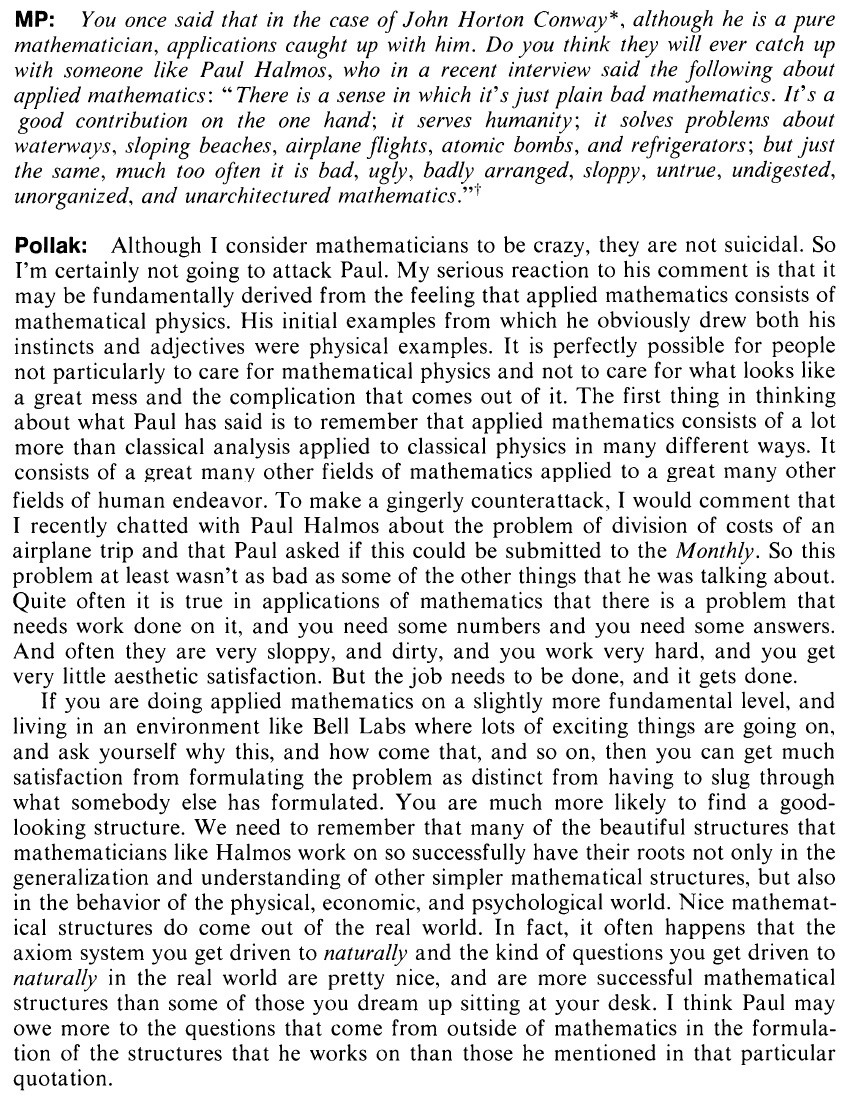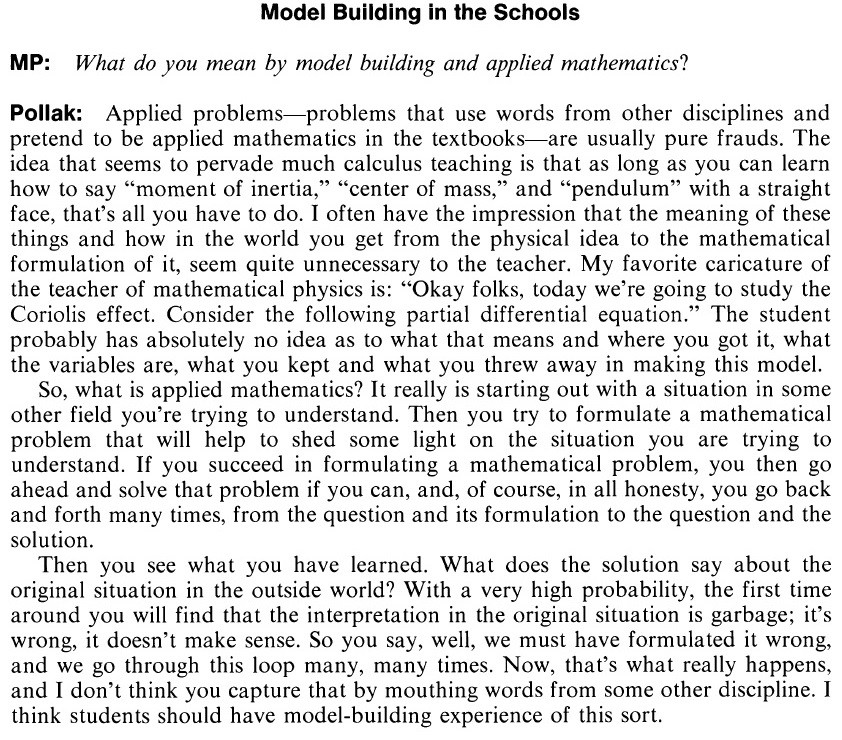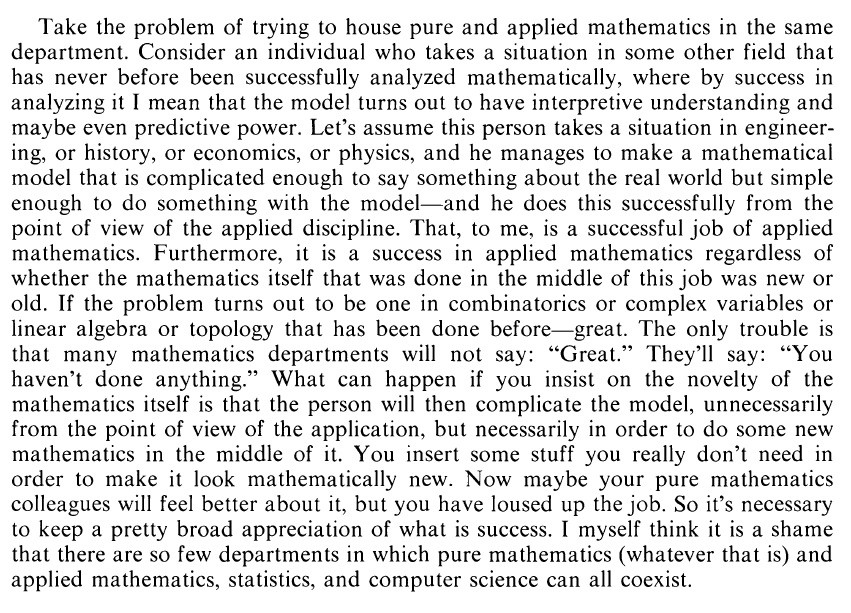Perhaps the experience of just such a student may help you?
As a student, when I chose my second-year maths courses, I compared the list of topics that were in second-year courses to the topics I studied in first-year courses and I decided what I wanted to do based on the things I enjoyed most in first year. It seemed to me that the courses labelled as "applied maths" contained mostly things I did not enjoy in first year maths. That is, heavily computer-based things, numerical things and differential equations. So I chose not to study any of those courses and did statistics and pure maths instead.
It wasn't until much much later that I thought about why I didn't enjoy those topics in first year.
Firstly, the maths-on-computers thing: In first year, this was mainly just frustrating. I would regularly get error messages for missing what seemed like small things, and I got told off by the teachers for not using the "most efficient" methods in my programs even though there didn't seem to be any instructions in how to make them more efficient. It seemed like a wasted effort when most of the problems we did were just as easy for me to do by hand. Moreover, my way of understanding things is very much visual and geometrical and the computer programming was very much text-based and just didn't feel the same.
Much later, I discovered that I could use the computer to simulate things and create lots of data that allowed me to investigate things I could never have achieved by hand. For example, I could simulate a board game I was designing to see what it did, or decide if a hypothesis test in stats really did seem to have 80% power. This power of the computer was not really apparent to me in first year. I also discovered the pleasure in having to make a program do something and checking and rechecking and editing it until it did what I needed it to well. This pleasure of a job well done was also lost on me in first year.
Secondly, the differential equations: In first year, differential equations was very much a procedural sort of topic. It was all very much of the form: this particular situation goes with this particular solution because it just does, so get good at recognising it. This went against everything I felt about understanding maths. I felt that there ought to be unifying principles and big picture ideas. I also liked the problem-solving aspect of other bits of maths where you had a small amount of tools and you worked out yourself how they fit together to show/prove/find something and there were often different methods of doing it, all of which were kind of clever. I disliked it when people said that maths was a list of problems and how to solve each one, yet this was precisely my experience of differential equations in first year.
Much much later, when helping students to study the higher-level courses, I saw more methods and how they fit together. I saw how quite deep bits of theory were brought to bear on these problems, such as treating functions as a vector space, or representing functions as infinite series. I also saw how very clever some of these methods were, and was able to stand in awe of the cool problem-solving aspect of the discipline. I wished then that more had been said about this side of it when I was in first year.
Finally, the numerical methods stuff: In first year the extent of this was calculating integrals by the trapezoidal and Simpson's rules. We brushed over this stuff very quickly and only did it on functions where we knew how to calculate it another way anyway. I certainly never had a feeling of a bigger picture. Also, they taught us these crazy error formulas which were just made me think "where the hell did this 2880 come from?" and "surely if I know the fourth derivative of a function I can do better than using an approximation?". Finally, it was just a lot of hard work.
Much later, I realised that there were unifying principles in these methods (such as the area being related to the average value, so it's reasonable to average some values). I also realised how supremely clever it was that you could figure out an error formula, and I wished I knew more about where those sorts of formulas came from.
There is one final aspect that is worth mentioning: the applied-maths-ish topics were the ones I just didn't understand so well, probably because they didn't fit with my natural way of thinking. So another reason I didn't enjoy them was simply because I didn't enjoy the sensation of feeling confused and they were a lot more like hard work and a lot less like play!
So to sum up: it wasn't so much that I didn't like the applications, but that the style of teaching, learning and problem-solving in the applied maths topics in first year was something that I didn't enjoy. Later, I realised that there were aspects of it that I could enjoy. (Though to be completely honest, when I watch people doing it, it often still doesn't look like fun to me.)
And what can you take away from this as a teacher?
Well perhaps you should ask them about the topics they have seen as applied maths in the past, and whether they enjoyed it or not. And indeed, ask them about what particular aspects of other maths topics they did enjoy. Then you might have a different sort of picture of why they feel grumpy.
You could also try to include elements in what you're doing that make it feel more like the other maths topics. Talk about the big picture structure. Talk about the clever maths problem-solving aspects of it (as opposed to the solving real-world issues). Talk about the pleasure of a job well done with the computing stuff.
Finally, you can make it really really really clear. There is nothing like simply not understanding that gets students looking around for reasons not to do something!


